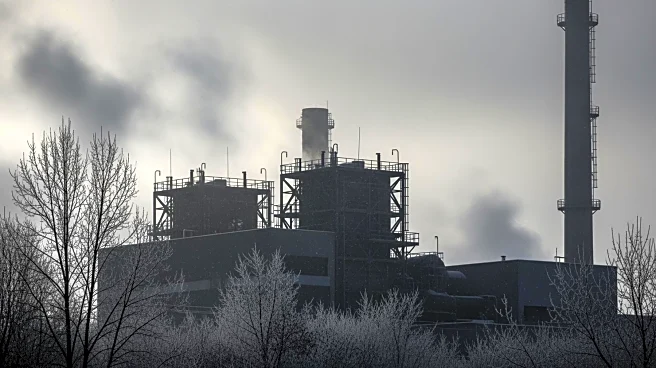What's Happening?
Kyiv residents are preparing for a challenging winter as Russian military actions have significantly disrupted Ukraine's energy infrastructure. According to the International Energy Agency, approximately
60% of Ukraine's natural gas production capacity has been lost due to Russian strikes. This has led to rolling blackouts across the capital, with power outages occurring twice daily for extended periods. The national energy provider has been informing residents of daily power outages, prompting them to stock up on essential supplies like batteries and generators. The head of Ukrenergo, Vitaliy Zaichenko, has indicated that these blackouts may persist throughout the winter, with the unpredictability of Russian shelling being a major factor.
Why It's Important?
The loss of energy production in Ukraine due to Russian strikes has profound implications for the country's ability to sustain itself during the winter months. The rolling blackouts not only affect daily life but also pose a significant challenge to Ukraine's resilience in the ongoing conflict. The situation highlights the strategic importance of energy infrastructure in warfare and the vulnerability of civilian populations to such disruptions. The international community may need to consider additional support for Ukraine to mitigate the humanitarian impact and bolster its energy security.
What's Next?
As the winter progresses, Ukraine will likely continue to face energy shortages and increased pressure on its infrastructure. The government and energy providers may seek international assistance to restore production capacity and manage the crisis. Additionally, the ongoing conflict may lead to further territorial gains by Russian forces, as indicated by recent captures in the Zaporizhzhia region. The international community's response, including potential sanctions or diplomatic efforts, could influence the course of the conflict and Ukraine's ability to recover.










